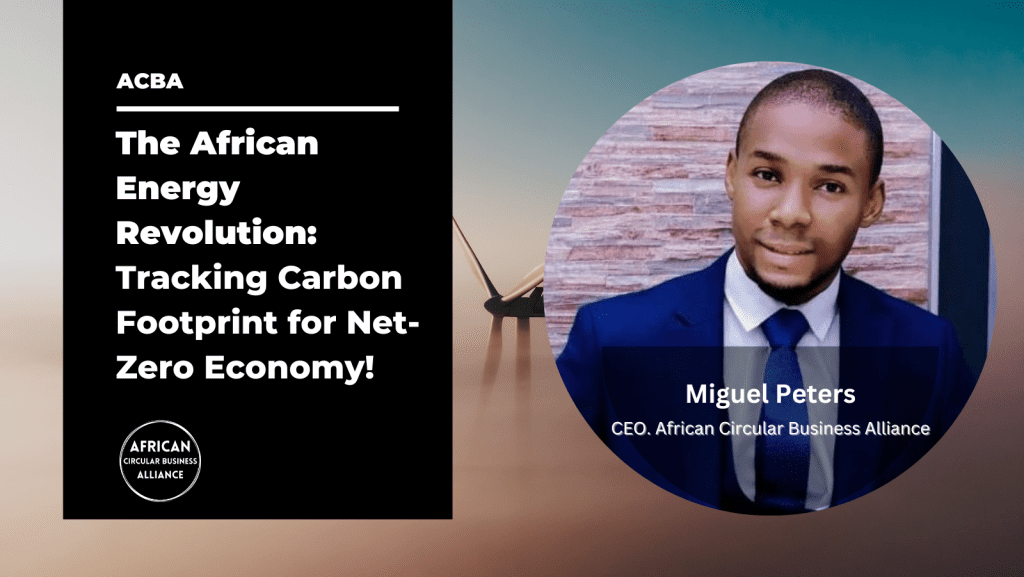Authored by Miguel Peters

Amidst the sprawling landscapes and vibrant cultures, Africa’s heartbeat resonates with the rhythm of growth. Its burgeoning population, a symphony of diverse dreams and aspirations, weaves a tapestry of hope and resilience. As the sun rises on this continent of promise, its economy flourishes, a testament to the boundless potential that flows through its veins. But every economy or continent with steady population growth requires substantial energy development, which is also the case for Africa.
Let’s embark on a discussion that’s both captivating and pivotal, as it holds the solution to achieving a net-zero economy and securing a sustainable future for the remarkable continent of Africa.
Picture this: Africa is experiencing an unprecedented energy demand boom, as populations grow, economies flourish, and industries thrive. The potential for progress is exhilarating, but it also comes with its fair share of challenges, particularly in the realm of Energy development when it comes to carbon management. This article will focus on carbon footprint tracking and why it matters.
Now, I know data isn’t the sexiest thing to chat about but stick with me for a moment. Carbon tracking is like having a GPS for emissions and must follow the Greenhouse Gases Protocol. It allows us to see where carbon is coming from, how much is being released, and where it’s headed. And trust me, this information is like gold when it comes to making informed decisions to appropriately model efficient climate resilience strategies towards a net-zero economy.
Let’s talk numbers for a second. Did you know that in 2019, Africa contributed around 3.9% of global CO2 emissions? That might not seem like a lot, but here’s the kicker – the potential for growth in carbon emissions is MASSIVE. As urbanization and industrialization continue to flourish exponentially in Africa, projections indicate that the Continent’s CO2 emissions could triple by 2030.
And this is where carbon tracking comes in. By closely monitoring emissions across various sectors – think energy production, transportation, and deforestation – we gain the power to identify emission hotspots, set emission reduction targets, and hold businesses and governments accountable for their environmental impact.
But wait, there’s more! The benefits of carbon tracking extend far beyond just keeping the African continent and of course, our planet cool. It’s an economic game-changer as well. By embracing cleaner energy sources and optimizing resource use, African nations can unlock a world of opportunities. Think job creation in renewable energy sectors, reduced healthcare costs due to better air quality, and increased energy efficiency driving economic growth – just to name a few. It’s a win-win!
Additionally, here are some fascinating facts and stats to chew on:
- Energy Access: While Africa is home to around 17% of the global population, it accounted for about 13% of the world’s energy demand. And guess what? Around 600 million people still lacked access to electricity. Clean energy sources like solar, wind, biogas, hydro and geothermal have a massive role to play in bridging this gap
- Renewable Potential: Did you know that Africa has abundant renewable energy potential? The sun-soaked landscapes are perfect for solar power, the continent’s vast coastlines are a dream come true for wind and wave energy enthusiasts, and the continent has great potential for geothermal energy as clearly described in this article
- Sustainable Path: Carbon tracking can guide African nations toward sustainable energy pathways. For instance, the African Renewable Energy Initiative (AREI) aims to generate around 300 GW of new renewable energy projects by 2030. This is a monumental step towards reducing carbon emissions while meeting energy demands
So, what’s the bottom line? Carbon Emission tracking is more than just data collection – it’s a crucial tool that empowers us to make informed decisions about our energy future, meet our growing energy demands, and pave the way for sustainable growth in Africa.
For this reason, the African Circular Business Alliance (ACBA) is already at the forefront of carbon-tracking technology development in Africa and open to collaborations with energy companies, tech labs, research and academic institutions, and regulators and government agencies that are committed to turning data into action, and action into a brighter, cleaner, and more prosperous future for all Africans and beyond.
Visit our contact page to get in touch with us.
